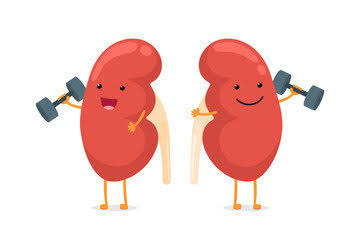Renal rehabilitation is a specialized form of rehabilitation that focuses on improving the physical, mental, and social well-being of individuals with chronic kidney disease.
Rehabilitation is defined as a “set of treatments targeted at optimizing functioning and decreasing impairment in persons with health difficulties in contact with their environment.”
According to this definition, a person’s ability to participate in employment, leisure, or other elements of everyday life may improve or even be restored with the support of rehabilitation services for individuals of all ages.
It helps people to overcome challenges in thinking, speaking, and walking by treating the underlying diseases and enhancing daily activities. Rehabilitation may be required after an accident, surgery, disease, or even the ravages of time.
The Global Impact of Kidney Disease
Kidney disease treatment is a major public health problem all over the globe. As the renal disease worsens, exercise endurance decreases (VO2 max). Uremic acidosis, a protein-energy shortage, inflammatory cachexia, and a sedentary lifestyle all contribute to the poor physical condition and muscle atrophy in those with chronic kidney disease.
Physical Challenges Associated with Chronic Kidney Disease
Malnutrition, osteoporosis, mobility problems, and an increased risk of falling are all symptoms of secondary sarcopenia, which may result from chronic renal disease.
Secondary Sarcopenia
Strength training and supervised physiotherapy may help people with secondary sarcopenia and chronic renal disease to improve their cardiovascular fitness and bone strength.
Exercising improved the exercise tolerance and ventilation efficiency of patients with chronic renal disease. A study shows that renal rehabilitation programs may help people with chronic kidney disease improve their physical capacities.
The Comprehensive Approach of Renal Rehabilitation
Renal rehabilitation (RR) encompasses a wide range of activities aimed at improving the overall health and well-being of patients. Renal rehabilitation (RR) aims to improve a patient’s physical, mental, and social well-being to reduce their risk of complications and death. Physical exercise, nutrition and hydration management, medication and medical monitoring, education, psychological treatment, and career counseling all fall under the umbrella of renal rehabilitation.
The Benefits of Renal Rehabilitation for Patients
Renal rehabilitation seeks to help people with chronic renal disease improve their quality of life. Patients with chronic medical conditions may benefit greatly from renal rehabilitation programs, thus the nephrology community felt compelled to keep up with their cardiology and pulmonary colleagues by integrating renal rehabilitation programs for these people.
Conclusion
Renal rehabilitation is an effective approach to improving the quality of life for people with chronic renal disease. With a comprehensive approach that addresses physical, mental, and social well-being, renal rehabilitation programs have the potential to reduce complications and improve patient outcomes.
Written By:
Dr. Sonia Pawaria
Associate Professor
Faculty of Physiotherapy
SGT University




